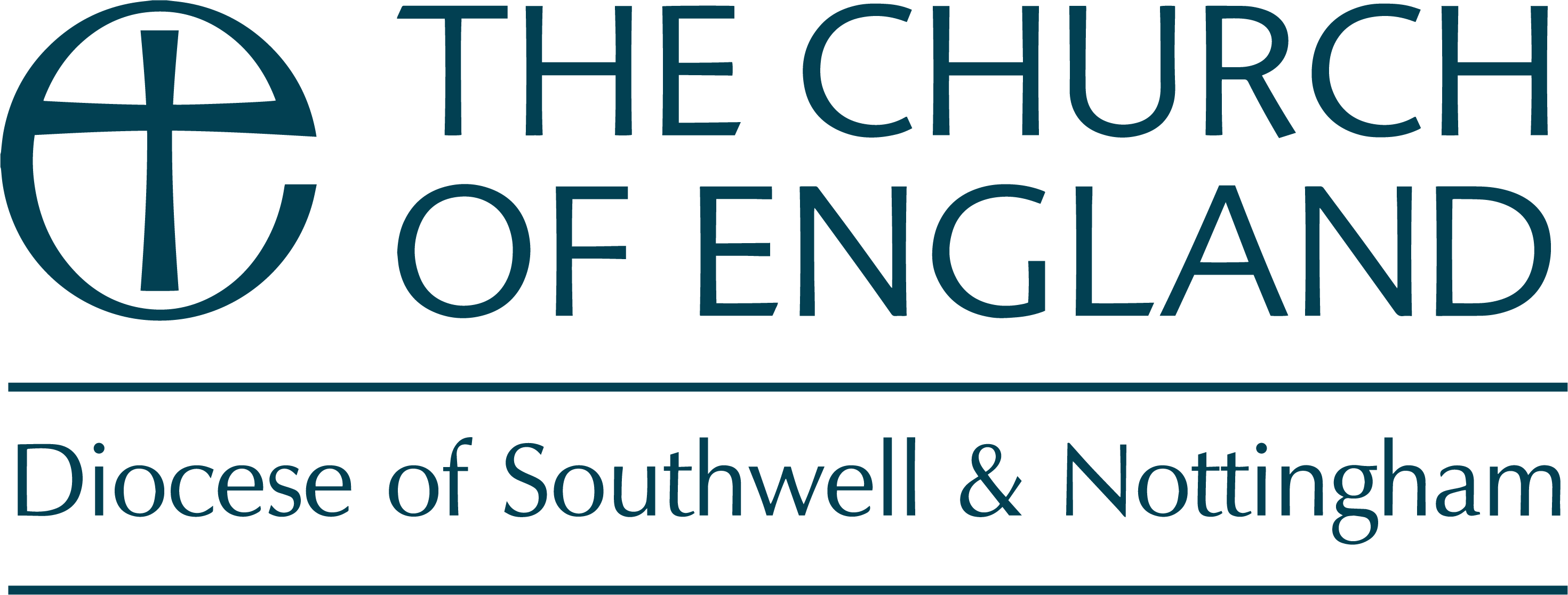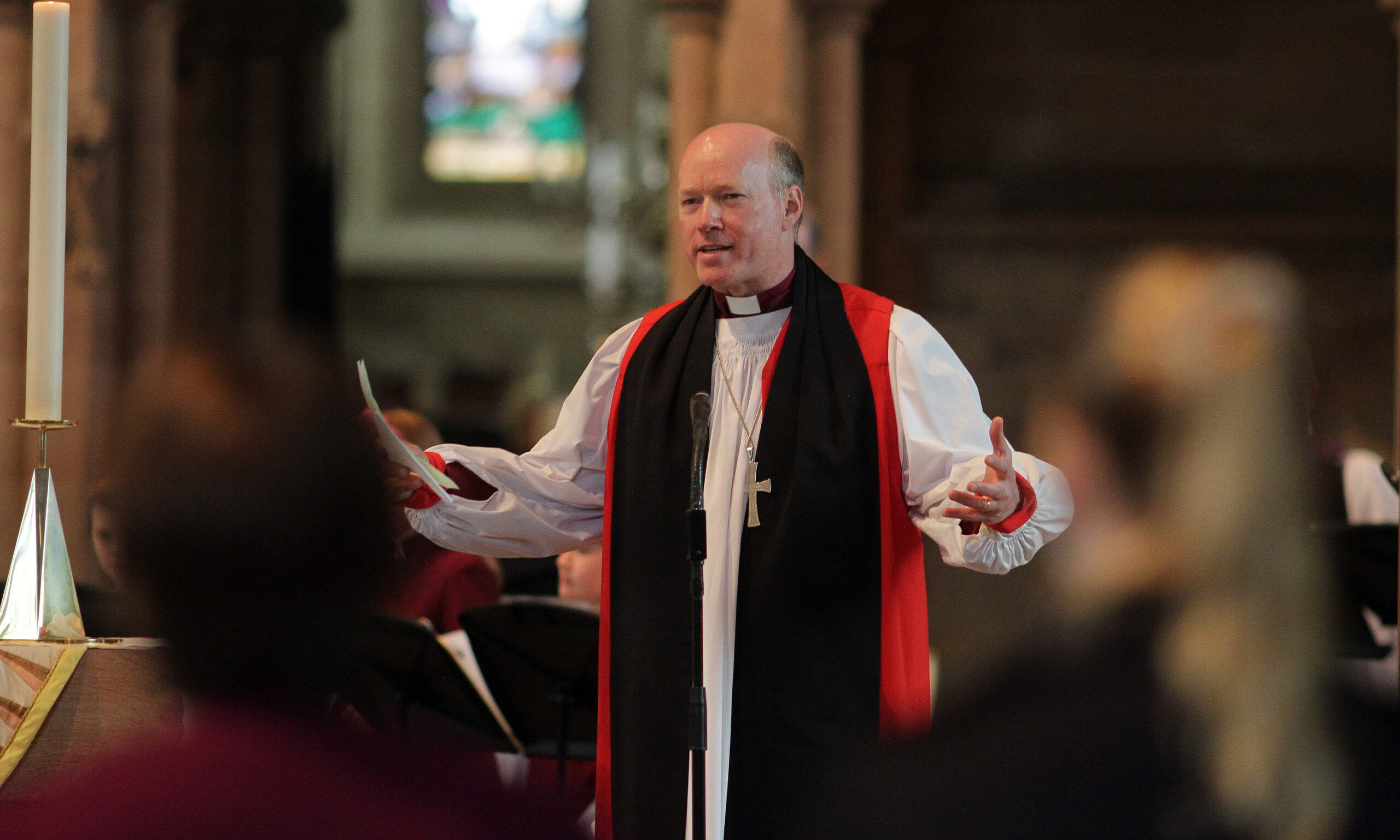Bishop’s Address to Diocesan Synod – Isaiah 35
This is the transcript of Bishop Paul’s address to Diocesan Synod on 10th May 2025.
I want to speak this morning about spiritual revival. I want to do that because one of our tasks as a Synod, in our stewardship of the work of God in this diocese, is to pay attention to the time and season we are in.
Augustine famously said, ‘Lord, you made us for yourself and our hearts are restless until they find their rest in you.’
Over the past 12months we have been hearing a growing number of stories of people coming along to church – feeling in some way ‘prompted to be there’, not always sure why, but best expressed as seeking God, with a sense of what we might call ‘spiritual hunger’. This is not in the hundreds, but it is consistent, it is growing, and it seems to be happening across the diocese in quite different places. It is feeling like the first drops of rain that come before there is deluge.
In the past six months there are stories from elsewhere in the country that are very similar, and the particularly exciting aspect of this is the number of younger people who are being drawn to church and to faith in Jesus. That is especially among Gen Z (age 14-28) and Gen Alpha (up to 13/14).
My question for us as a Synod is ‘How do we respond to what God is doing and in particular, how do we prepare ourselves, our churches and the diocese for spiritual revival?’
A few weeks before Easter, the Bible Society published the results of a survey, that clearly verified that something is happening – they called it a ‘Quiet Revival’. You can find the report on-line.
One of the findings that is particularly compelling is that of all the many non-churchgoers they interviewed, 3 out of every 10 people said they would respond positively if someone they knew invited them to go to church. How will we know if that is the case? Only by extending an invitation to people – of course that may also include deciding what it would be best to invite them to. This is what people have been doing through hosting the 53+ exploring faith courses in the spring.
If we are discerning a change in the spiritual temperature, then it would seem important to put in place now those things that will help us to be good stewards of what God is doing. What if the drops of rain never become a deluge? Then we will thank God for the blessing he is bringing and continue waiting on him and serving his purposes. It may be that we only hear about it happening somewhere else, in some other part of the church – then let us rejoice in that and pray for them and continue seeking and serving the Lord. But I want to urge us, Synod, to pray for a deluge of God’s grace and power to be poured out on our city, towns and villages and beyond. To press in as close as we can to the presence of God in prayer, thank him for what he is doing and humbly ask him to do more: to pour out his Holy Spirit with fresh power on his church and start with me. If you are not sure what to pray, then ‘Come, Holy Spirit’ is a good place to begin, but Isaiah 35 is a passage that the church has often turned to in praying for revival.
Then in Isaiah 64:1 the prophet cries out, “Oh, that you would rend the heavens and come down, that the mountains would tremble before you!’
There is much that we can learn from different seasons of spiritual renewal and revival in the past. It is the same Holy Spirit then as now. And some of the opportunities and challenges, even where the context may have dramatically changed, may follow a similar pattern. So for a short while I want to take you to Nottingham in the late 18th century and particularly to tell you about a woman called Mary Tatham, born in 1764.
Mary Tatham (nee Strickland) married Thomas the son of a Nottinghamshire grocer, in 1787 (age 23). Mary Tatum was not only a gift to Thomas but also a great acquisition for the Nottingham Methodist Society. The records of the next 40 years record her working tirelessly with young people as a Class Leader in the Wesleyan Chapel (that later became Halifax Place Wesleyan Chapel in 1798) where Thomas was a Lay Minister. Her classes always had the greatest number of members – averaging 60 young people in all three weekly classes. It was said of her at the time, “The diligence and affection with which she sought after every wandering sheep were truly exemplary. Hundreds derived benefit from ‘her intelligent and cheerful piety, and from her fervent and believing prayers, offered up with particular reference to their respective conditions.’
But it had not been at all easy. While there were plenty of people coming along through all her energy and hard work, in the first ten years after moving to Nottingham there seemed to be very little spiritual life. Eventually she reached a point of exhaustion, and on the 15th October 1796, she wrote in her diary, “Oh Lord, increase my faith; thou knowest this people have been a formal, barren, and dead people, ever since I knew them; I had a little strength when I came amongst them, but they enervated it; I had a little zeal, but their opposition and dislike quenched it.”
This particularly dismal state had come about because, on the previous Monday, when she was hosting the regular meeting for Class leaders only 5 out of 27 showed up (we will all have had moments of despondency like that). She had reached the point where she could see no way through the spiritual indifference.
The next Sunday a visiting speaker, a soldier, was invited to share their testimony and a message. Thomas said: “His word was like fire. It penetrated every heart, and tears ran down almost every face…
Under the deepest conviction of my want of grace, I stood confounded before the people, and confessed my unfaithfulness, and inability to lead them. I had scarcely made this acknowledgement before the Lord visited me in mercy and I felt such an overwhelming sense of his love, as enabled me to speak with the same power as the soldier had done, and with the same effect.”
On the Tuesday evening, Tatham shared his experience with the Class Leaders’ Meeting “and after I had done, they broke out into such a general confession of sins, sometimes three or four together, and sometimes, until 11o’clock.” There were similar scenes two evenings later and again on Sunday.
Five weeks after her despondent diary entry Mary Tatham wrote:
“I think I never saw such a change in the face of things for the time, as there is in our Society in Nottingham: the people are stirred up, the work is deepening wonderfully in our hearts.”
She attributed the change to God “preserving a praying remnant in the darkest and deadest season of the Church.”
Two years later the new chapel was opened which could seat 1600, rather than the 500-limit in the Hockley Chapel.
In the early 1800’s, the Church of England churches also began to be touched by a similar move of the Holy Spirit. There were plenty of setbacks and opposition along the way, not least suspicion about how many people were being drawn to non-conformist churches in the fast-expanding city.
It took until 1809 for a new Church of England church to be built, called St James, to expand the mission of the church in reaching a fast-growing city in a time of increased spiritual interest. It became Nottingham’s first new church since the Middle Ages – though there was plenty of contention in the planning, even prompting a debate in parliament.
Momentum and growth continued over the next few decades and the 1840s saw the consecration of six new churches and the gathering of congregations for three further ones. This included, on 23 April 1840, Trinity Church. Within 10 years it would have the largest congregation in Nottingham with 800 adults and 350 children in the morning, and a further 1060 at Evensong. It became renowned for its worship and preaching, along with a vibrant ministry among children and young people. Many new ordained vocations were to follow, as well as a significant number called to serve in overseas.
There was a further season of spiritual revival in 1859-63 which touched the whole nation and the last occasion that has happened in such a way.
I share this story, above all because it is important that we do not lose heart if, like Mary Tatham, we are serving in a setting where we don’t see the spiritual life and growth that we long for. Also to recognise the significance of people who will continue to persevere in prayer, seeking God for a fresh move of his Holy Spirit. I hope we can all share in this.
So back to the question that matters to us as a Synod:
‘How do we respond to what God is doing and in particular, how do we prepare ourselves, our churches and the diocese for spiritual revival?’
This is what we can consider as we persist in the joyful task of Growing Disciples, and the 7 key focus areas for spiritual healthy and growing churches. I am heartened that our focus areas really do align well with what we learn from the church in seasons of spiritual renewal?
Briefly, there are five things, though they all flow from the first:
- Much Prayer – earnest (hunger and intense desire to know God), humble (deeper repentance and awareness of sin) and joyful (there has always been a fresh impetus in worship, with new songs celebrating ancient truths). New movements of intercession often started with small numbers 3-7 people: let us not despise the value of small payer meetings. The Holy Spirit touched a few people’s lives in an unmistakable way, and everything else flowed from this, almost like a dam bursting.
- Much Clear Preaching of the gospel – marked not by eloquence but simplicity and authenticity, yet with a sense of urgency. The preaching plainly set out the invitation of the gospel, motivated by concern for people’s souls not concern to fil churches and maintain institutional denominations. People from all backgrounds, education and cultures came to faith.
- Much Hard Work – putting structures in place, doing the work of discipleship, with a particular focus on appointing and developing leaders and nurturing new vocations.
- Times of Testing – it was necessary to be prepared for disappointments and setbacks, most frequently causing division, discouragement and distractions to the primary focus of sharing the gospel and growing life-long disciples.
- Huge Social Transformation – Richard Ostler (married Mary Tatham’s daughter, also Mary) and together they became highly influential campaigners for social reform and instrumental in the story that led directly to Lord Shaftesbury’s, Factory Act.
But it all starts with Much Prayer! And a single focus on seeking the glory of God: his presence, his holiness, his reputation. What God has done in the past – in many and various ways – he is doing again across the world today. We can be very thankful we see signs of renewal around us too.
[On 30th May 1792, on the other side of the city, close to St Nic’s in a Baptist Chapel at the top of Friar Lane, William Carey, preached on this text. It wasn’t the best sermon ever preached, but by God’s grace it was hugely effective in pointing the church beyond itself – that it had been blessed in order to be a blessing. It was the height of the spiritual revival when the church could have thought the job was done, our buildings are full, our finances secure, we are enjoying good fellowship. But William Carey preached from Isaiah 54:2-3:
“Sing, barren woman, you who never bore a child;
burst into song, shout for joy, you who were never in labour;
because more are the children of the desolate woman
than of her who has a husband,” says the Lord.
2 “Enlarge the place of your tent, stretch your tent curtains wide,
do not hold back; lengthen your cords, strengthen your stakes.
3 For you will spread out to the right and to the left; your descendants will dispossess nations and settle in their desolate cities.”]**
Synod, let us therefore continue to prepare ourselves for spiritual renewal and revival and let us be ready as his church, not asleep but awake: making prayer our highest priority because God is our greatest desire.
Let us also be ready to move beyond the safe boundaries and limits we often set for ourselves, for the only boundaries that matter are those of the advancing kingdom of Jesus our Lord, above in the lives of ordinary people across the city, towns and villages of Nottinghamshire, and beyond. And to God be the glory!
NOTE. In brackets are parts of the text that there was not sufficient time to include in the Synod Address, but which is relevant to the message and of which Bishop Paul has spoken before to the Synod.



